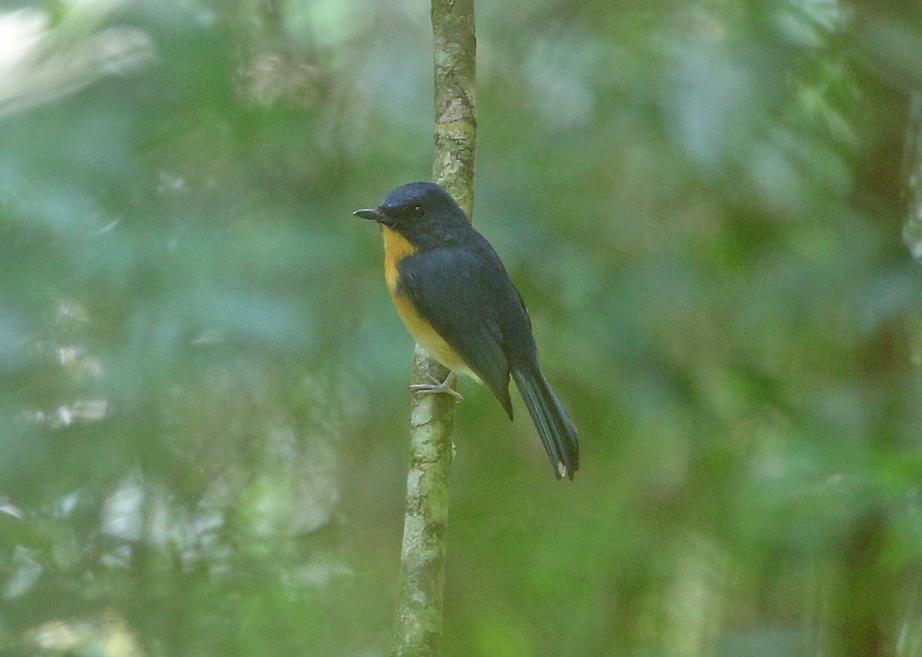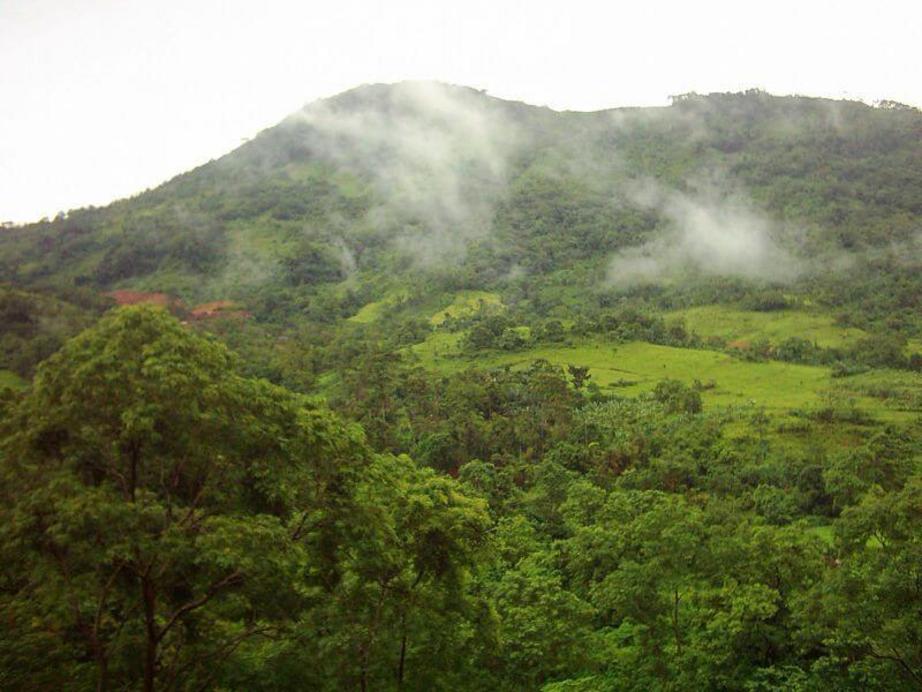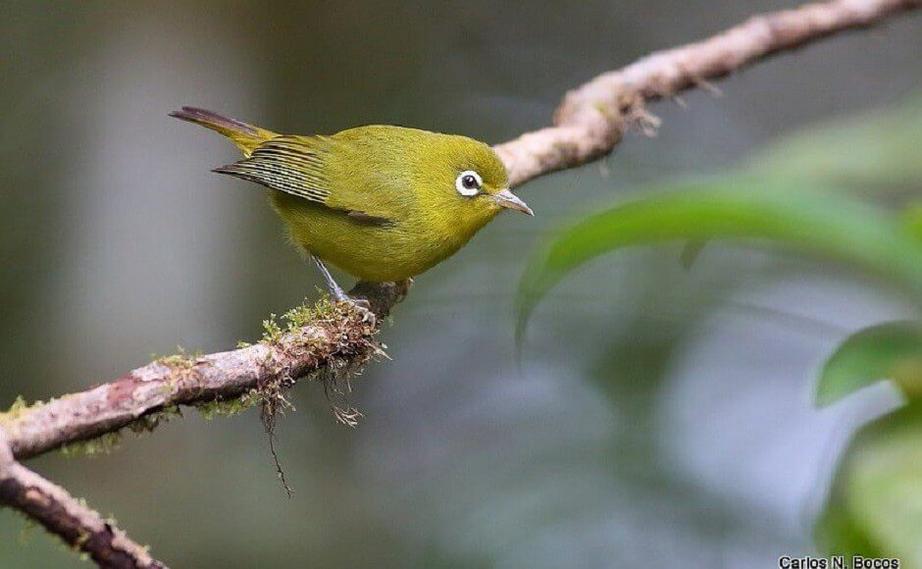Two new bird species discovered in Borneo
Borneos remote Meratus Mountains are home to two species of bird previously unknown to scientists.
According to a new study published in academic journal BirdingASIA, the mountain range in South Kalimantan, Indonesia, is home to two species that have been named the ‘Meratus White-eye’ and the ‘Meratus Jungle Flycatcher.’
 Photo: James Eaton
Photo: James Eaton
'Meratus White-eye' was completely unknown before the expedition to the South Kalimantan region of Borneo, Indonesia.
Whilst the mountainous regions of Malaysian Borneo in Sarawak and Sabah are relatively well-explored, Indonesia’s Kalimantan provinces have been seldom visited by avian experts.
Nevertheless, “few people would have predicted that there are still a couple of undescribed bird species holding out in an isolated tract of hills,” one of the researchers, Dr Frank Rheindt from the National University of Singapore, told Asian Correspondent.
“Within South-east Asia, the island of Borneo is one of the longest studied regions.”
The only previous documented ornithological survey in the Meratus region was made in October 1996, was significantly hampered by heavy rainfall, and only focused on areas below 900 metres.
The 2016 study found that habitat between 500 and 700m was largely destroyed for cinnamon and rubber plantations, gradually giving way to degraded forest with recent and ongoing logging activity. Between 900 and 1,400m, where the researchers undertook observation, was closed-canopy forest.
An ecosystem at risk
Borneo is the largest island in Asia, boasts one of the richest ecosystems on earth and is home to many species not found anywhere else.
This includes 420 birds, more than 40 of which are endemic, as well as the pygmy elephant, proboscis monkeys and Asia’s only great ape – the orangutan. Orangutans only exist on Borneo and the Indonesian island of Sumatra.
Across the swamps, mangroves and rainforest of Borneo, some 15,000 plants can be found, 6,000 of which are endemic. According to the World Wildlife Fund (WWF), three species are discovered every month in the Heart of Borneo conservation area.
But much of the Meratus Range remains unprotected, except for southern areas that lie in the Pleihari Martapura Wildlife Reserve – placing the habitats of the Meratus White-eye and Jungle Flycatcher at risk.
Timber companies currently shy away from steep terrain in the region, however “continuing encroachment will make future deforestation of these elevations much more likely, perhaps at a time when cost-effective timber harvesting strategies have been developed for use in montane forests,” says Rheindt.
Large swathes of forest in Indonesian Borneo have been destroyed in recent decades to make way for palm oil plantations. A study by the Center for International Forestry Research (CIFOR) released in September 2016, showed that between 1973 and 2015, old-growth rainforest across Borneo was reduced from 76 percent to just 28 percent.
Only 50 percent of the vast island shared by Malaysia, Indonesia and Brunei remained forested, even when considering 12 percent by industrial plantations.
“Since 2005, Kalimantan experienced a boom in plantation development. Over half of the existing plantations were added since then, and there has been a steep increase in the rapid conversion of forests to plantation,” said lead author of the CIFOR paper, David Gaveau.
“More needs to be done to protect Borneo’s forests.”
 Source: Wikipedia Commons
Source: Wikipedia Commons
South Kalimantan’s Meratus Mountains
South Kalimantan’s Meratus Mountains. Source: Wikipedia Commons
Rheindt agrees, stating that “there should be a moratorium on any further logging in the province of South Kalimantan,” where the Meratus Range is located.
“South Kalimantan is probably the most deforested province on the island of Borneo, and its natural communities are unlikely to withstand any further encroachment.”
Impact on Borneo’s local communities
Earlier this month, activist organisation Swedwatch released a report that implicated seven Scandinavian banks in financing companies involved in destroying forests and creating a “far-reaching human rights disaster” for indigenous Dayak communities in Borneo.
“These companies have breached indigenous people’s rights to be consulted and their rights to keep their traditional forests,” Frida Arounsavath, a researcher for Swedwatch told the Thomson Reuters Foundation.
“These forests are at the centre of indigenous people’s rights, of their identities, and of their ability to survive as peoples and as cultures.”

